
It’s no secret that the United States loyally backs Israel, but it also has good relationships with many Arab countries. These are our best friends in the Arab world.
24/7 Wall St. Insights
- The United States has good relationships with many of the world’s 22 Arab countries.
- These friendships are driven by common political and economic interests that override problems related to Israel.
- Also: 2 Dividend Legends To Hold Forever
Muslim Countries

“Muslim” is the name for a person who follows Islam as their faith. There are about 1.8 billion Muslims in the world, or 25% of the world’s population. They are the majority in 49 countries, which are called “Muslim countries.” These include hundreds of different ethnic groups spanning North Africa, the Middle East, Central Asia, the Indian subcontinent, and Southeast Asia.
Arab Countries
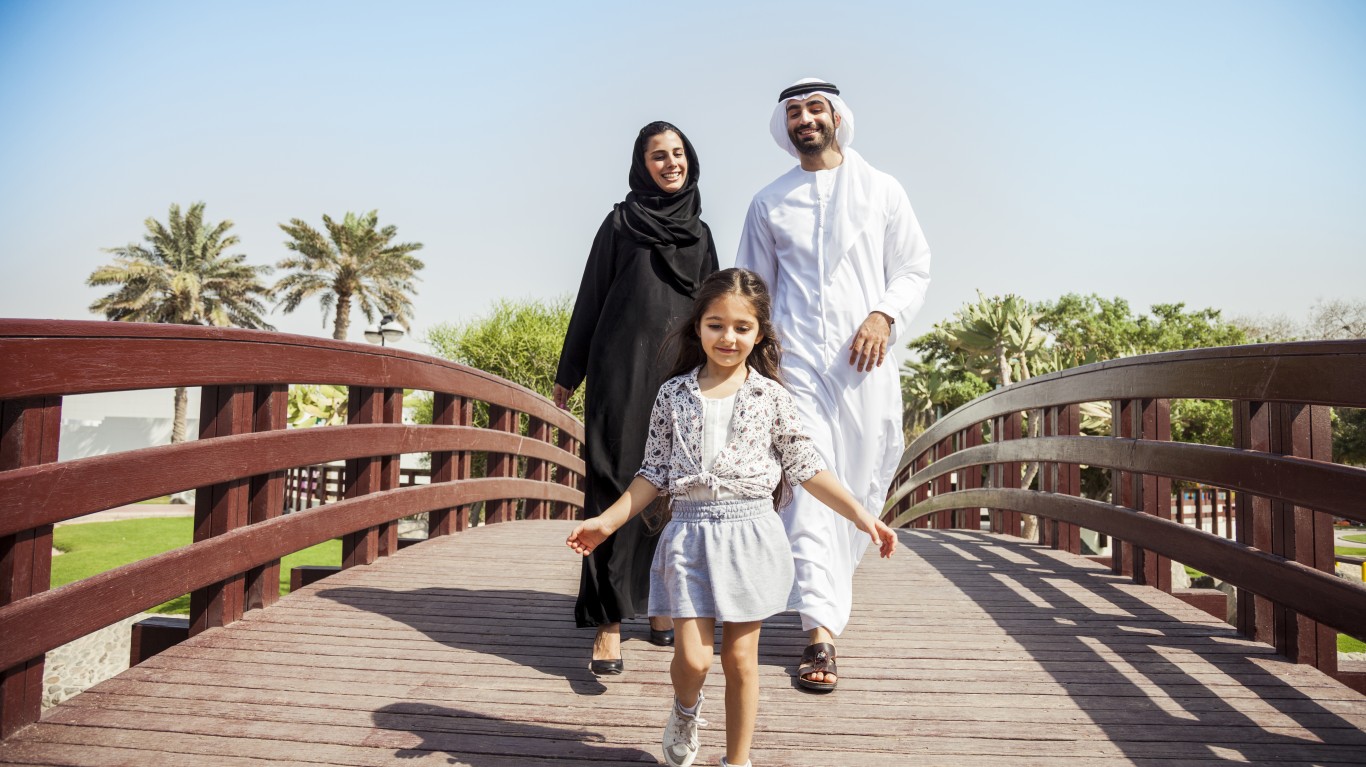
The Arabs are a specific ethnic group that started out in Arabia and spread to much of the rest of the Middle East and North Africa. There are over 400 million Arabs in the region, but not all of them are Muslims. 7% of the Arab population follows other religions, mainly Orthodox Christianity.
Why Do People Mix Up “Muslim” and “Arab?”

Islam started in Arabia. Muhammad was Arab, and the Qur’an was written in Arabic and is recited in Arabic in countries that speak other languages. Mecca, the holiest city and pilgrimage site for Muslims, is located in Saudi Arabia. So Islam and the Arabic language and culture are closely linked. But Muslims in Iran, Turkey, Malaysia, Bangladesh, and other areas that were not settled by Arabs should not be called Arabs.
Which Countries Are Arab?
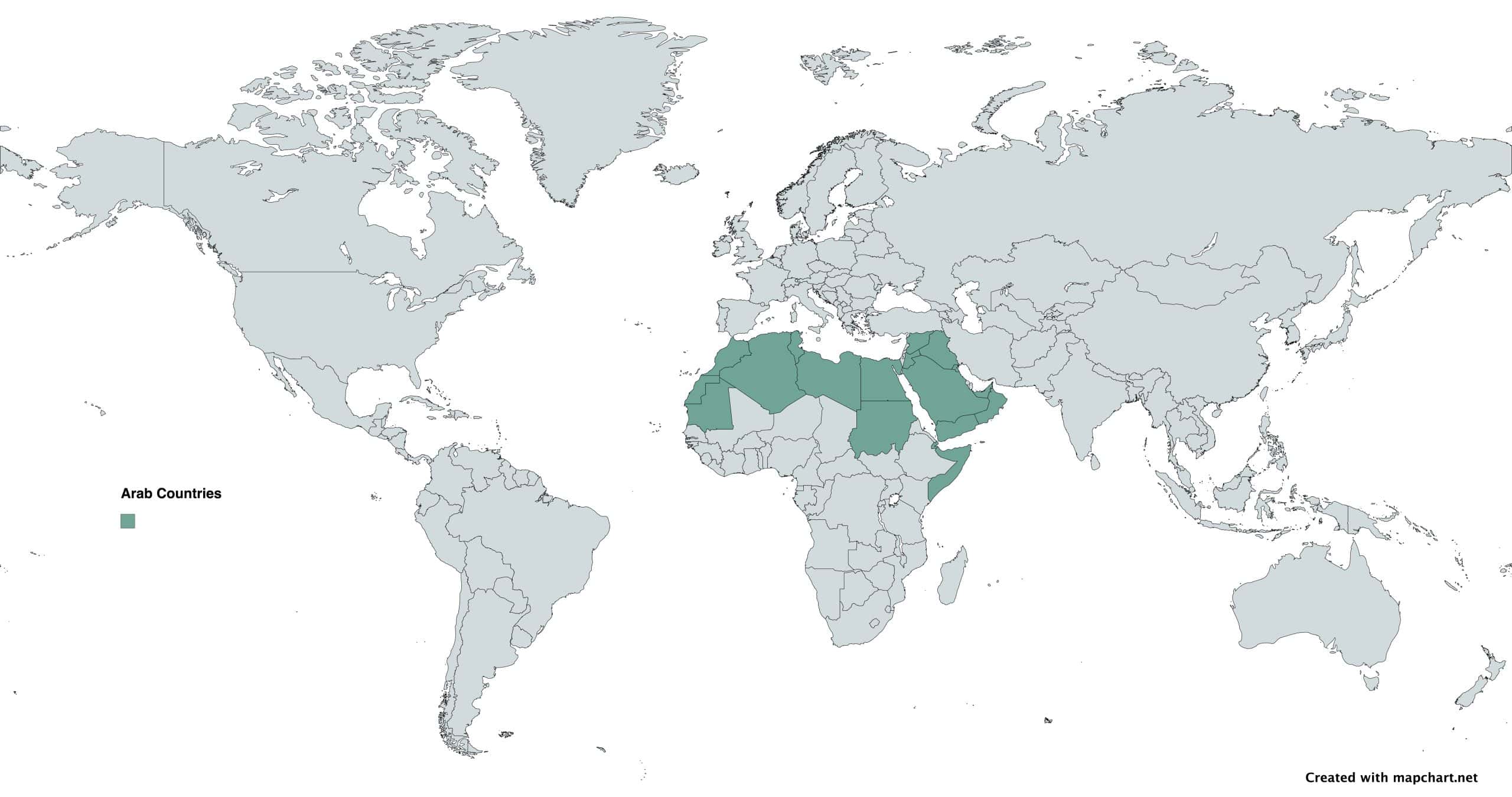
There are 22 Arab-majority countries in the world. Each of them has minorities of other ethnic groups. Some people in these minority groups are Muslims and others follow different religions.
The Arab countries are: Algeria, Bahrain, Comoros, Djibouti, Egypt, Iraq, Jordan, Kuwait, Lebanon, Libya, Mauritania, Morocco, Oman, Palestine, Qatar, Saudi Arabia, Somalia, Sudan, Syria, Tunisia, the United Arab Emirates, and Yemen.
Origin of the Arab-Israeli Conflict
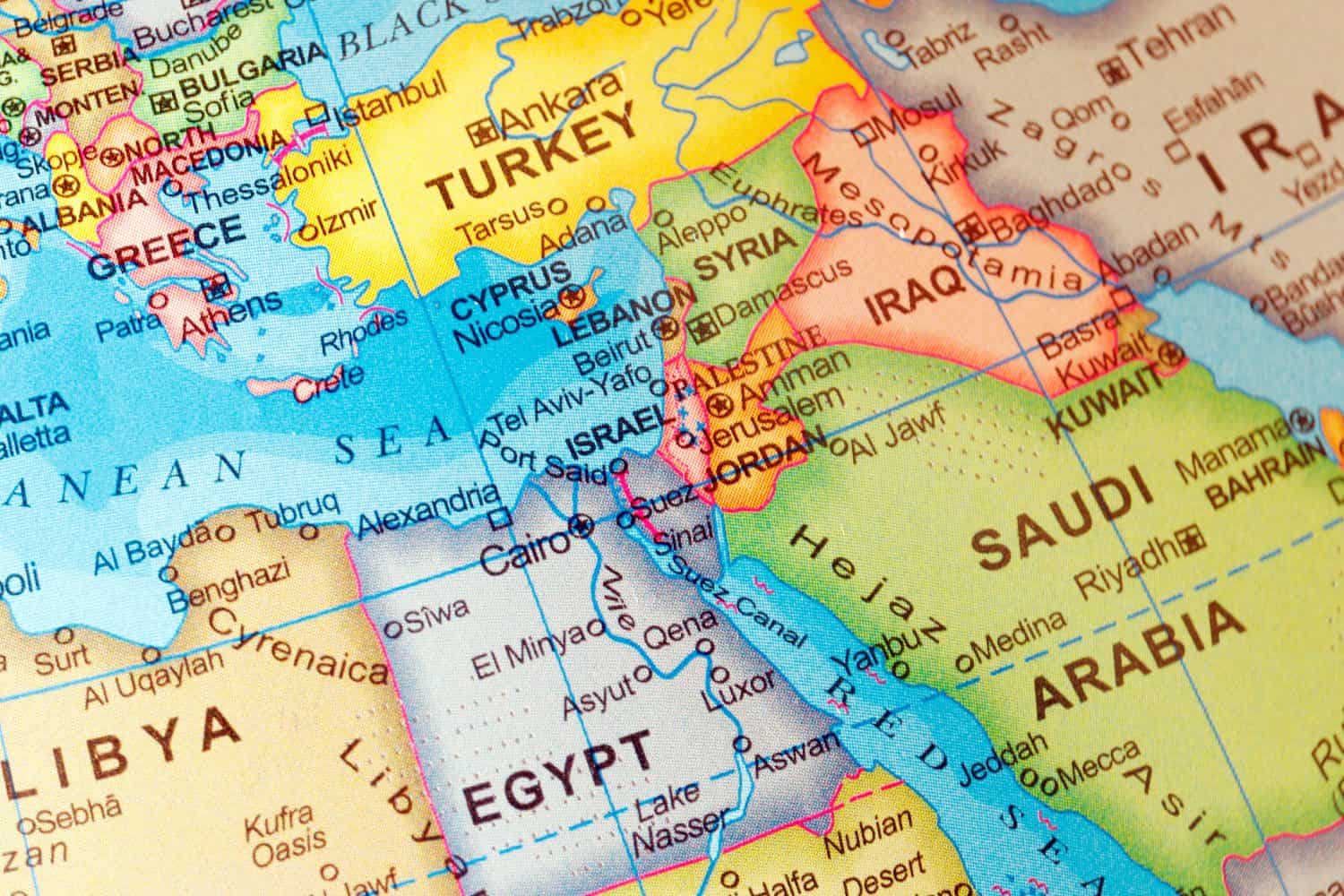
The biggest problem in the Middle East is a long-running conflict between Israel and the Arab countries. Israel/Palestine was a British c0lony. The land was divided between Jews and Arabs and achieved independence in 1948, but immediately fell into civil war with both sides wanting to claim the whole land.
The Arab-Israeli Wars
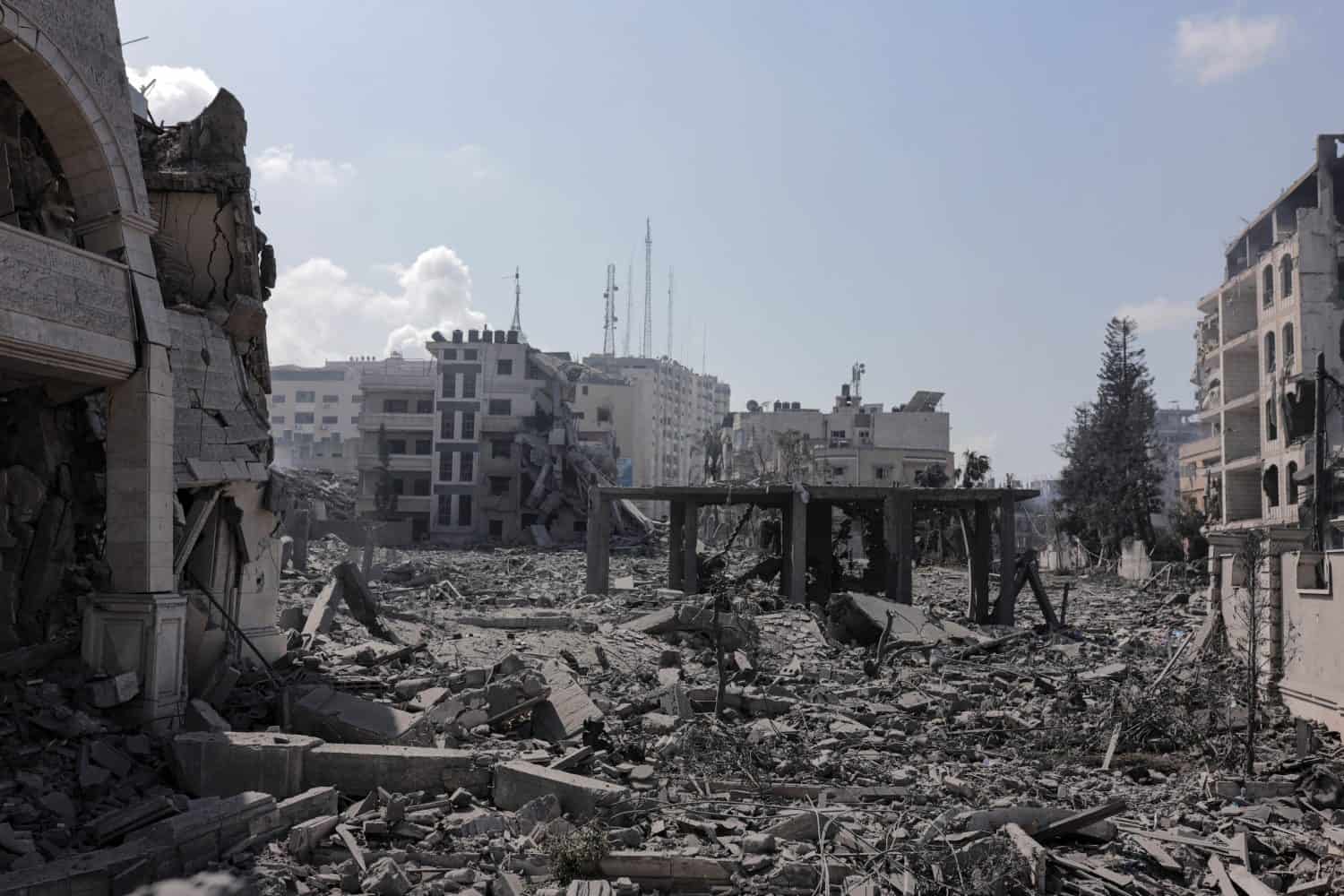
Israel fought wars with different coalitions of Arab countries in 1948-49, 1956, 1967, 1973, and 1982 and has put down numerous uprisings by Palestinian Arabs in Israeli-occupied areas. The United States and other Western countries were heavy backers of Israel with financial and military assistance, while some of the Arab countries drew support from the Soviet Union during the Cold War.
Arab and Israeli Objectives
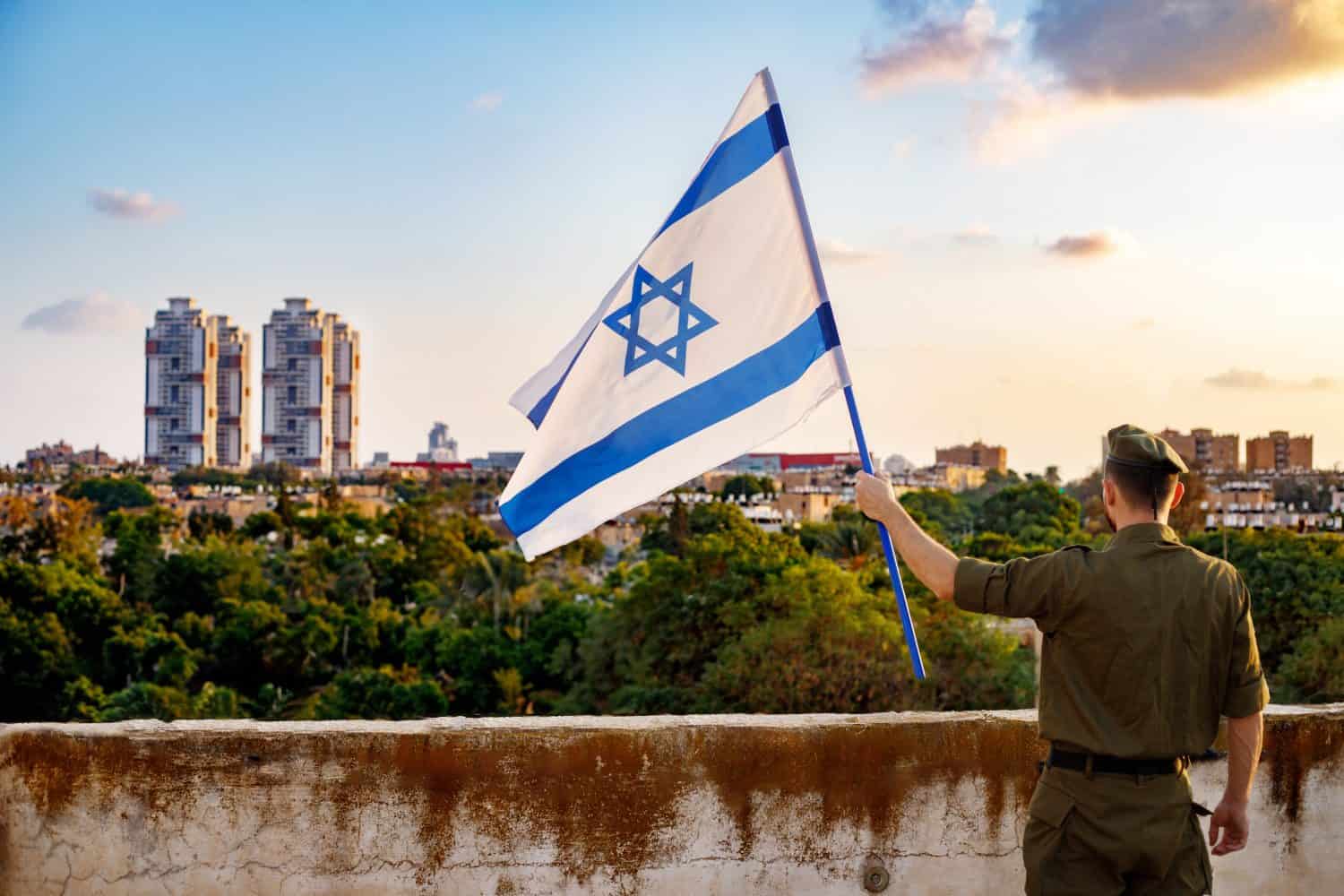
The Arab countries want Israel to evacuate the occupied West Bank and Gaza and for an independent Palestinian state to be established there. Syria also wants the Golan Heights returned to it.
Israel does not want to return the occupied territories because it views them as historic parts of Israel and it wants enough land to provide it strategic depth to defend itself in the event of war.
The Arab-Iranian Conflict
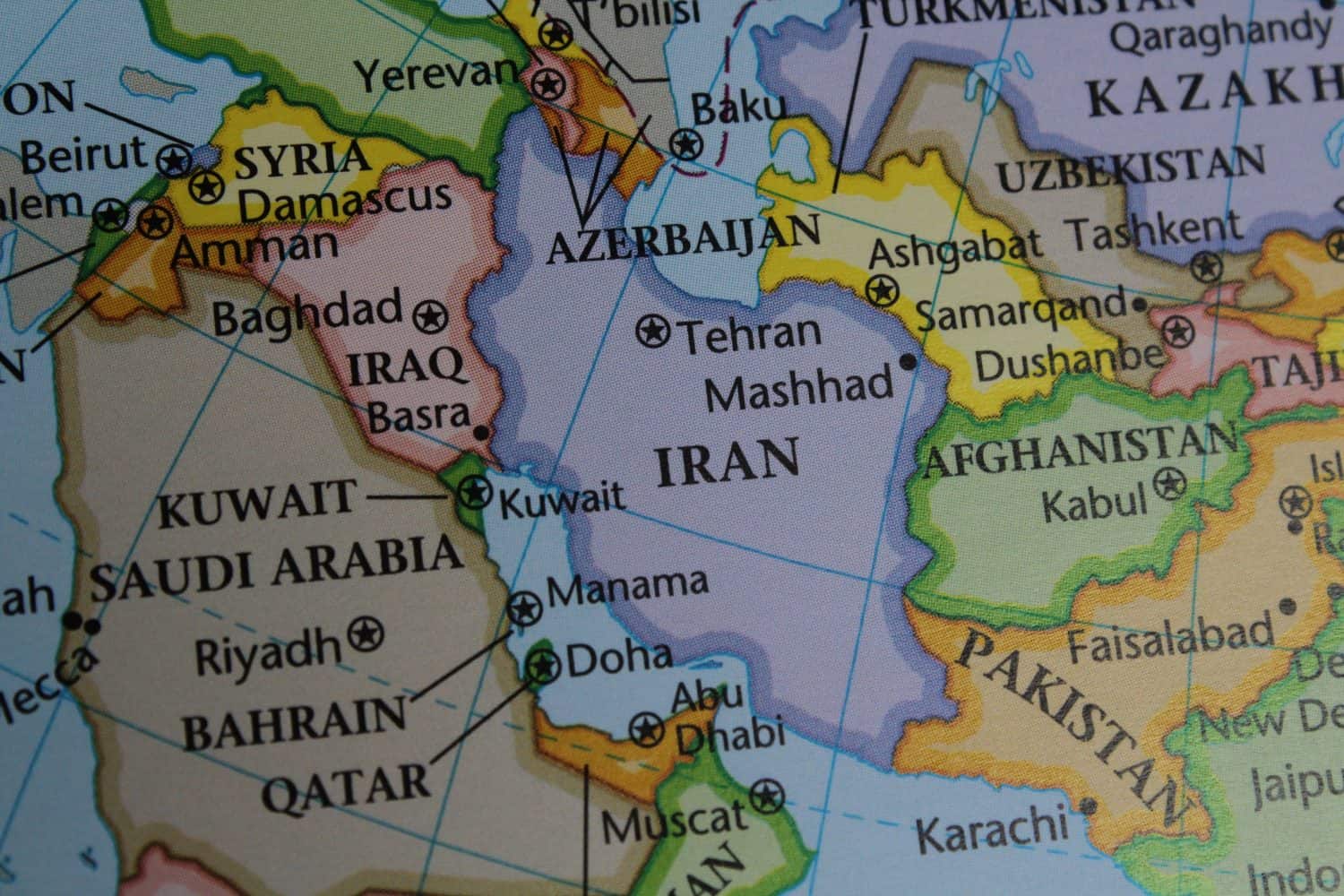
There is also a centuries-old rivalry between Iran (formerly Persia) and some of the Arab countries. Iran vies with Saudi Arabia for leadership in the Middle East. It has sponsored international terrorism and armed factions in Yemen, Iraq, Syria, Lebanon, and Gaza and is trying to develop nuclear weapons.
The Oil Factor
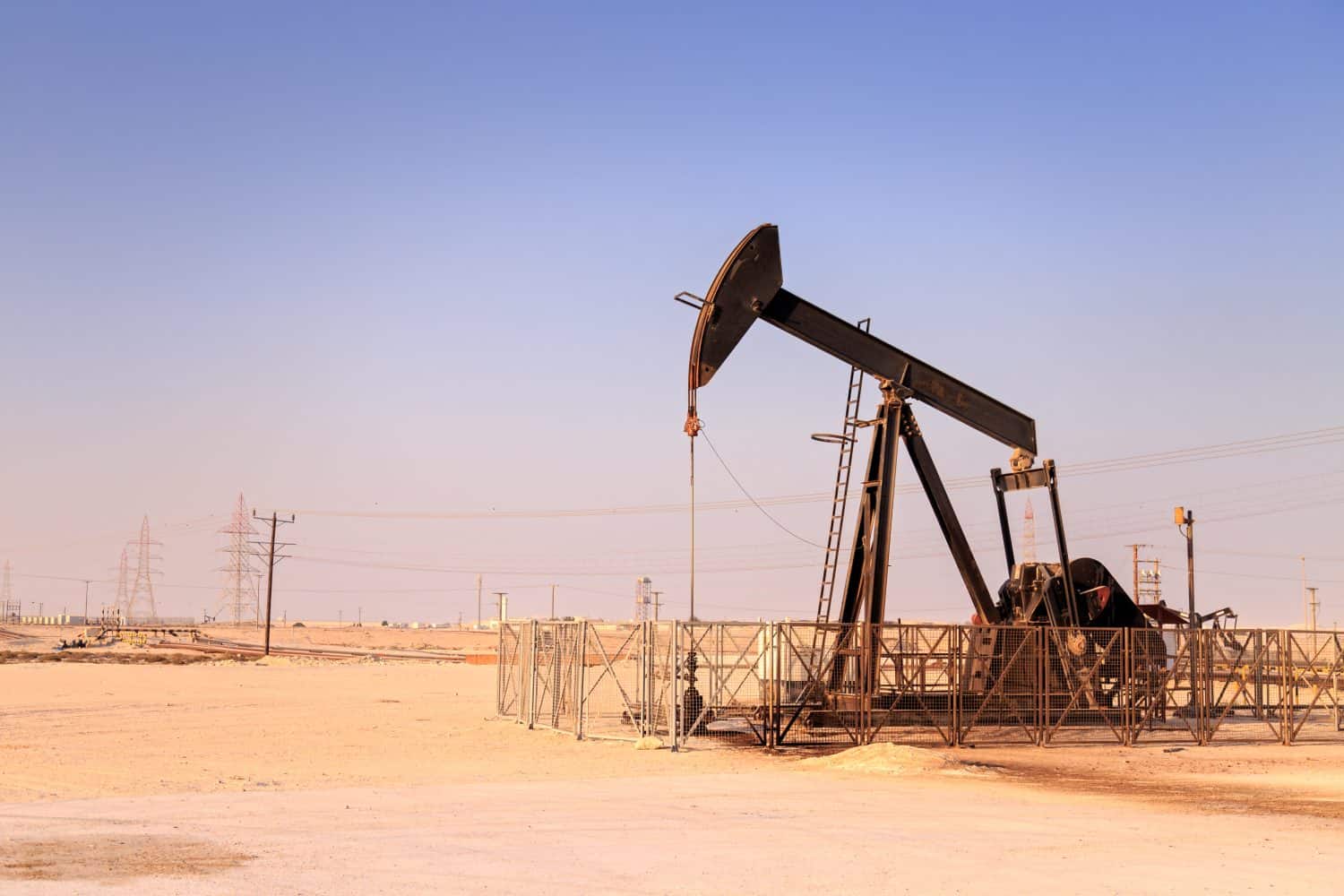
Over 30% of the world’s oil comes from Arab countries and they sit on about 79% of the world’s proven petroleum reserves. In the 1970s, Arab countries cut off the oil to punish the West for supporting Israel. And the U.S. has intervened more than once militarily to keep the oil from falling into the hands of hostile countries.
A Regional Arms Race
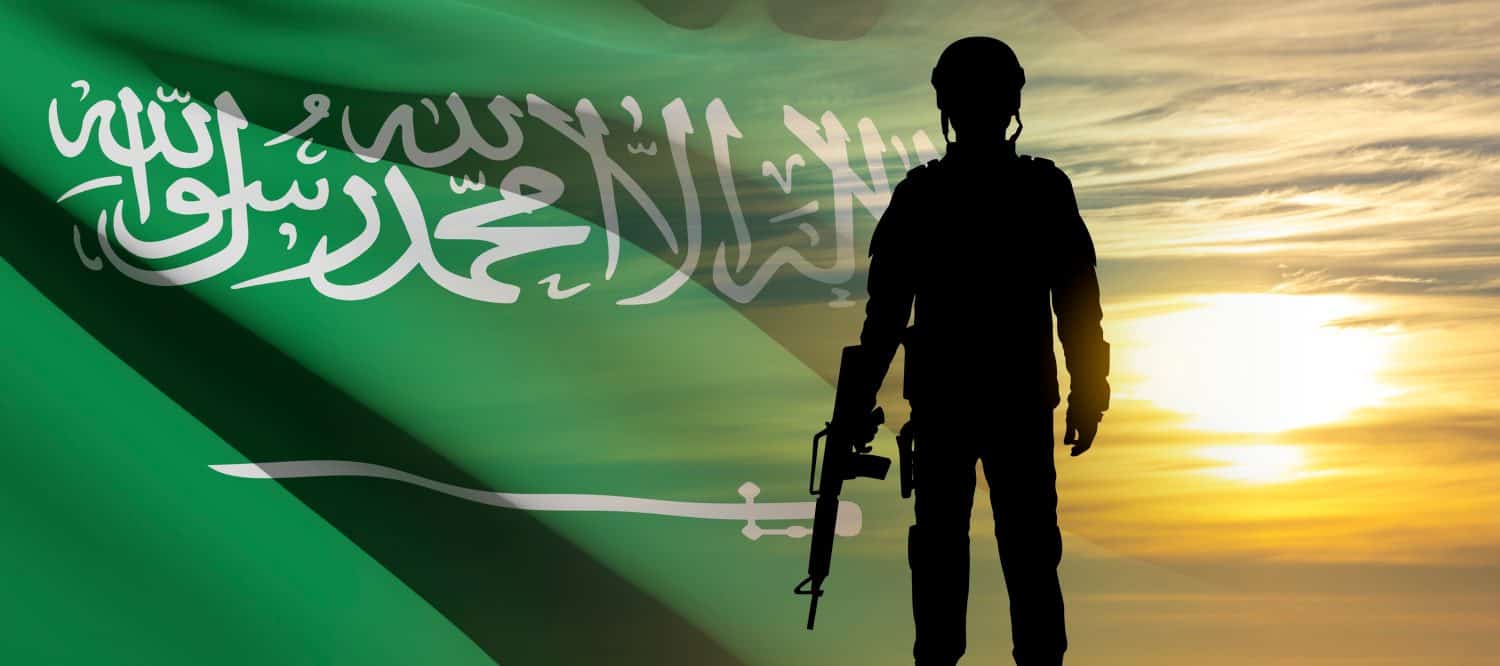
Because of the tensions and rivalries in the the Middle East and the ocean of oil money that flows in, countries in the region are in an arms race.
- Iran receives some assistance from Russia and manufactures drones for them to use against Ukraine. Russia also has a base in Syria and supplies arms and equipment to them.
- Israel is one of the top recipients of American military assistance and has top-of-the-line training and equipment. Israel also has anywhere from 75-400 nuclear weapons of its own.
- The oil-rich Arab countries of the Middle East purchase billions of dollars worth of arms, mainly from the United States and other Western countries to defend themselves from Iran and keep pace with Israel.
Arab and American Objectives
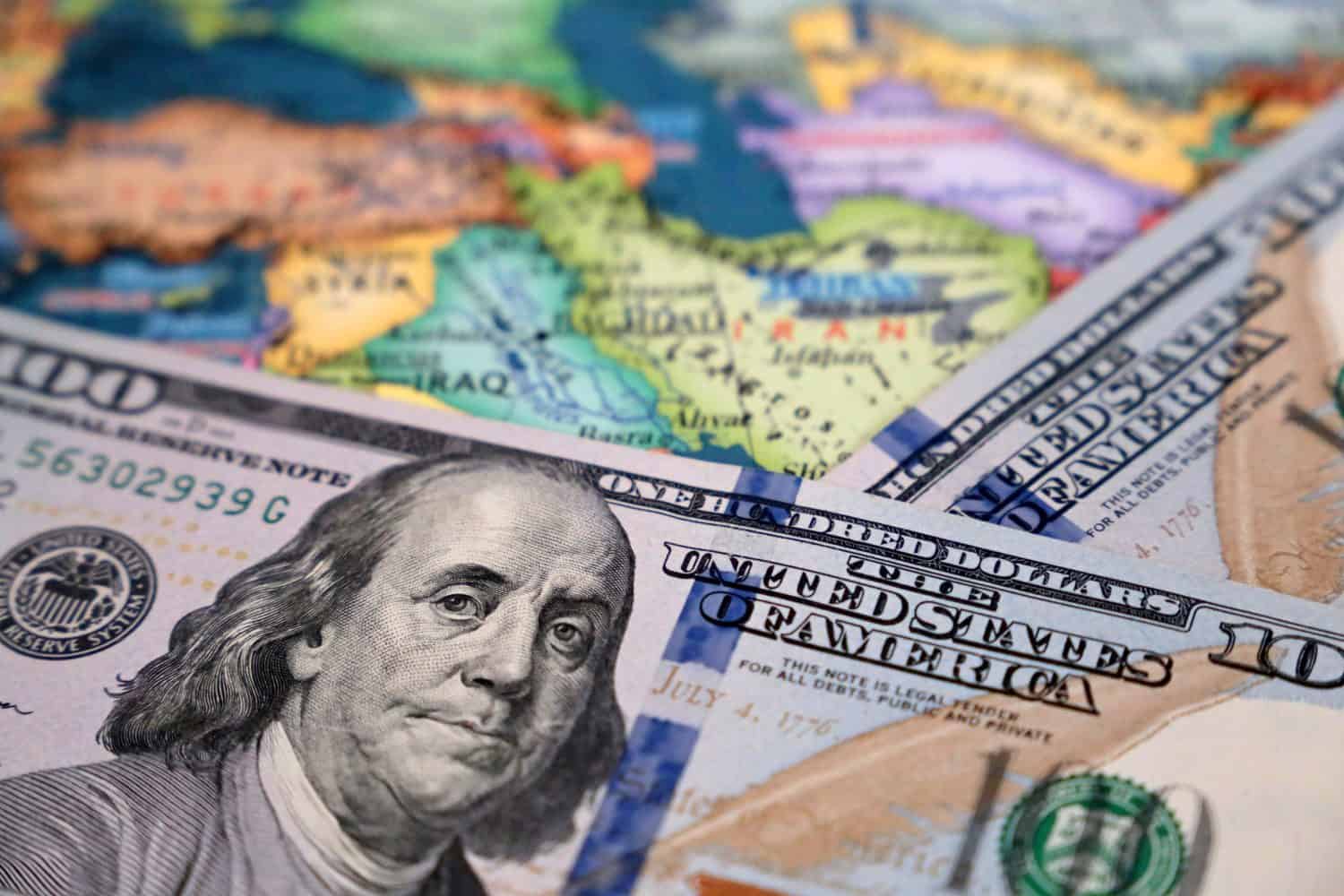
What this all adds up to is that, while Arab countries are unhappy with America’s support of Israel, they also want the United States and other Western countries to buy their oil, sell them arms, and help defend them in the event of attack by Iran or other hostile powers.
The United States wants friendly relations with the Arabs to continue profitable trade, to safeguard busy trade routes in the Mediterranean, Persian Gulf and Red Sea, to keep its ally Israel safe, and to shut out rival countries like Russia and China from the region.
Now here are some of America’s best Arab friends.
1. Morocco
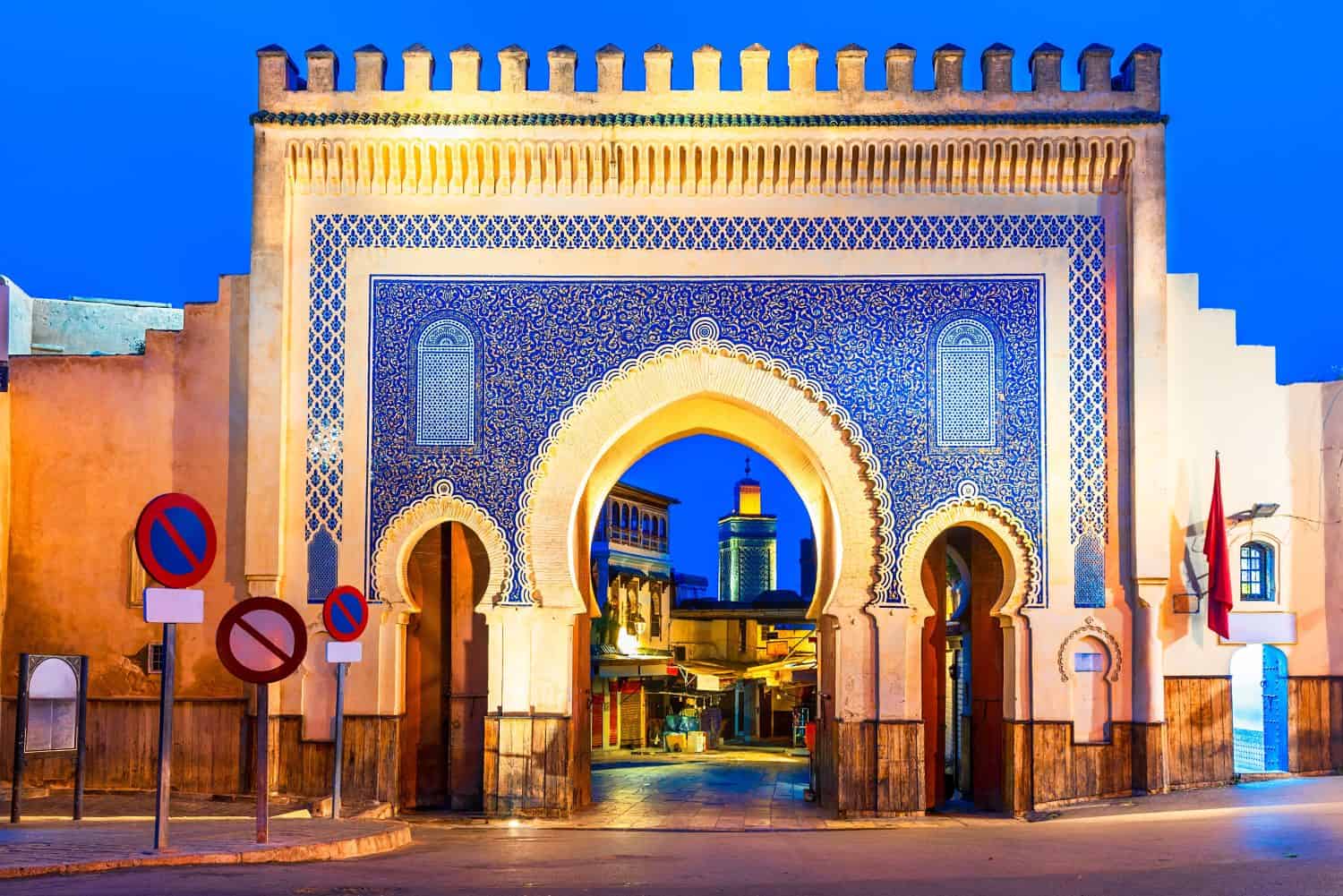
In 1777, Morocco was the first foreign country to recognize the independence of the United States. The two countries signed a friendship treaty in 1786 that is America’s oldest treaty still in force. Morocco helped the United States in its struggle with the Barbary Pirates. Today it is a “Major Non-NATO Ally.” This gives them access to more advanced U.S. weaponry and is the closest relationship a country can have short of a full-scale alliance. In 2020 Morocco normalized relations with Israel.
2. Egypt
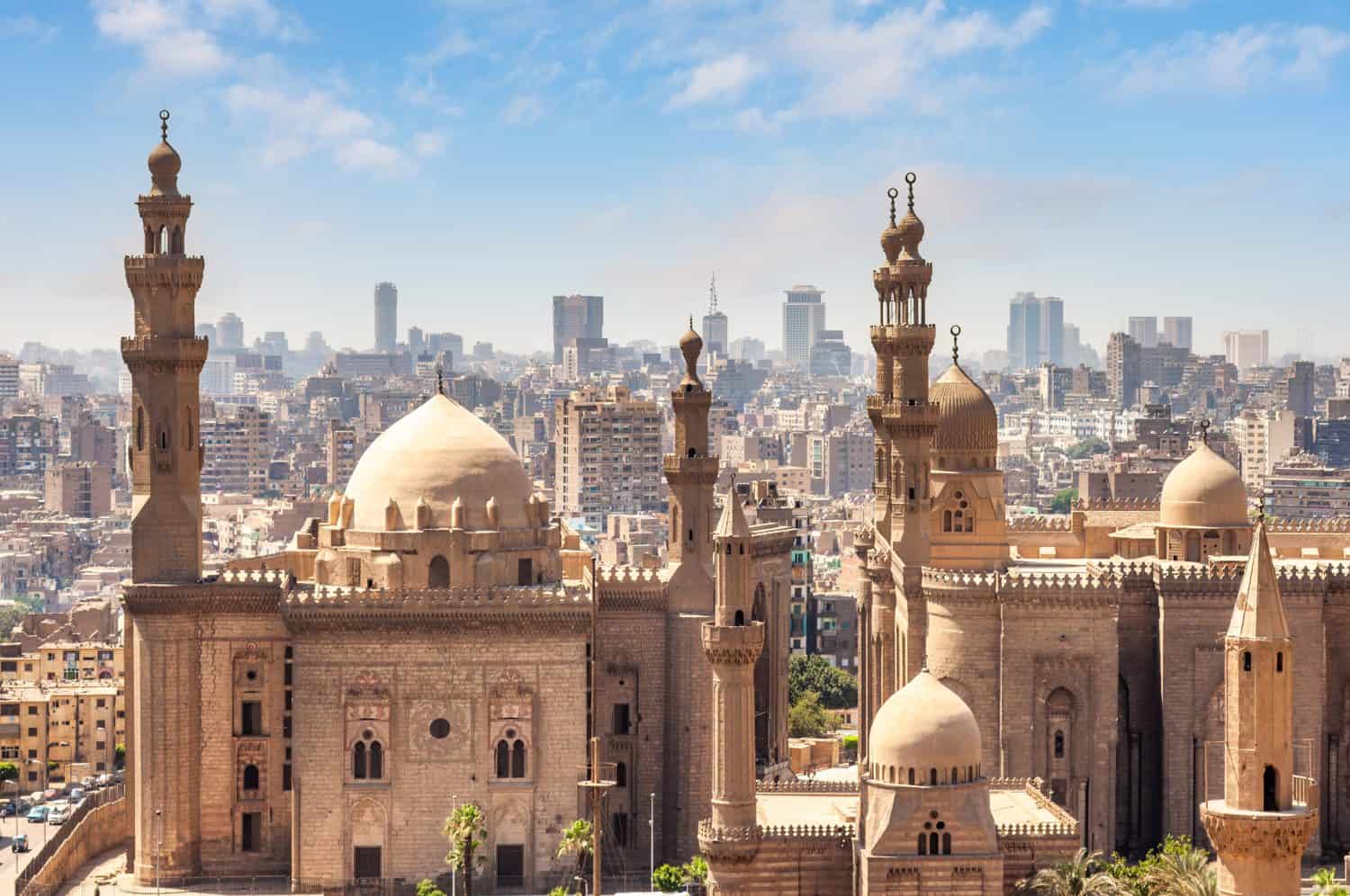
Egypt and the U.S. have had a close relationship since the 1970s, when Anwar Sadat became the first Muslim leader to sign a peace treaty with Israel and in return reaped a bonanza of American military and financial aid. It is one of the main recipients of American military aid and a Major Non-NATO Ally.
3. Jordan

Jordan is also a favored “Major Non-NATO Ally” of the U.S. It is a moderate Arab country that has signed a peace treaty with Israel. A small number of American troops are stationed in Jordan.
4. Kuwait
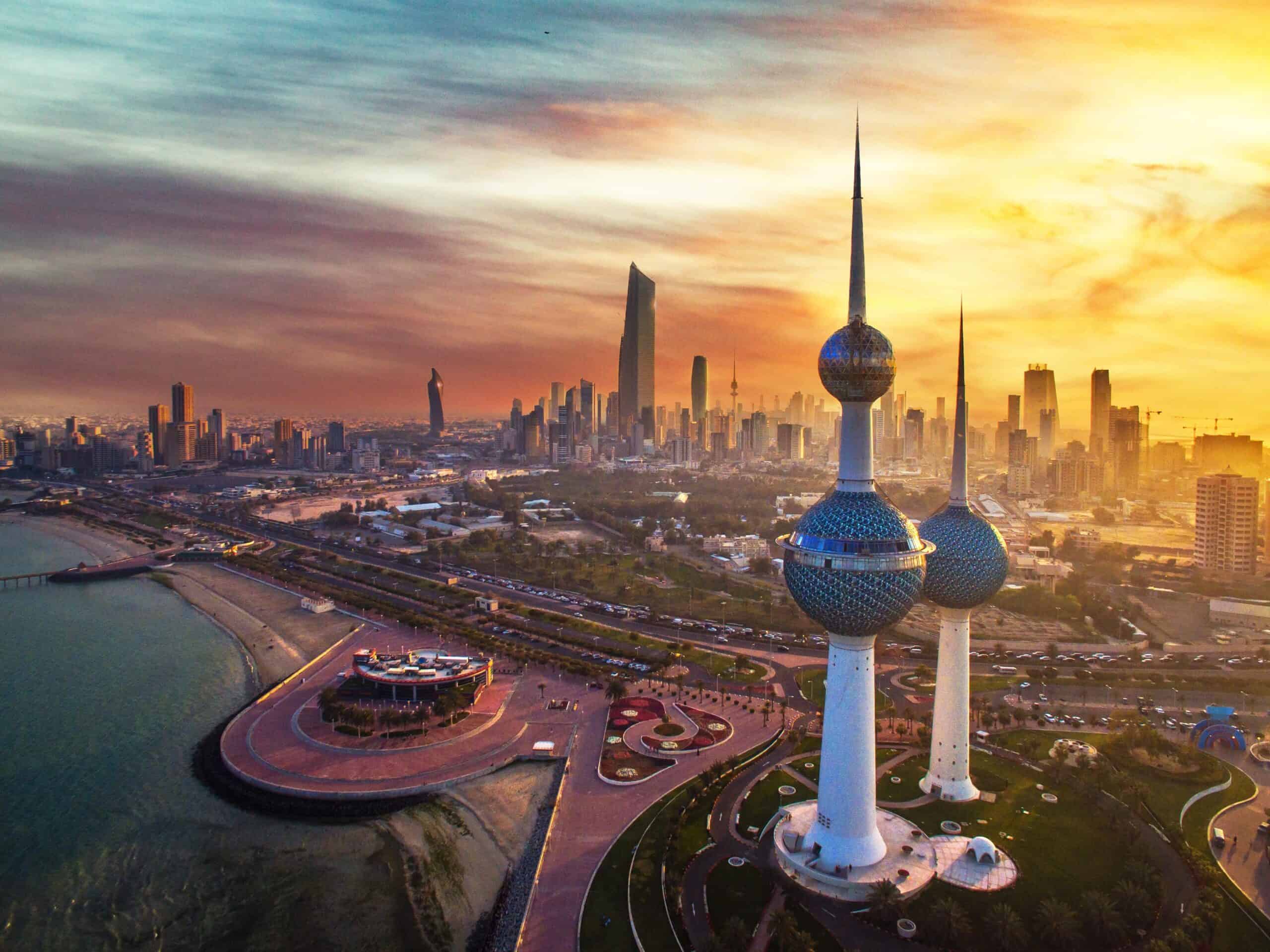
Kuwait is a small oil-rich country at the top of the Persian Gulf. After it was invaded by Iraq, the United States put together an international military coalition to restore its independence in the first Persian Gulf War. It is a Major Non-NATO Ally and has about 13,500 American troops stationed in-country for its defense.
5. Tunisia
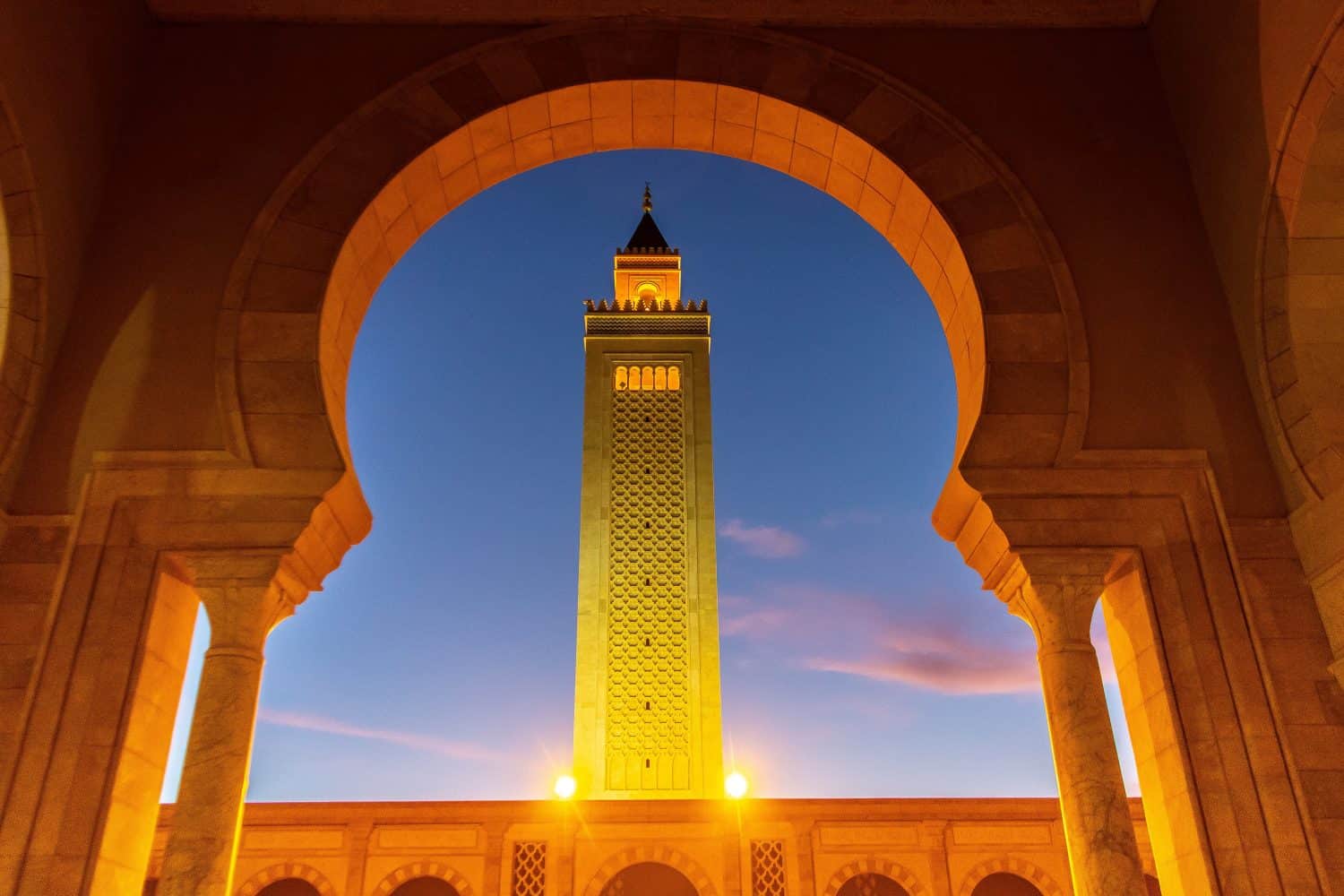
Tunisia, a North African country in the central Mediterranean, has had a more progressive and secular government than many of its neighbors. In 2015, President Barack Obama designated Tunisia as a Major Non-NATO Ally.
6. Bahrain
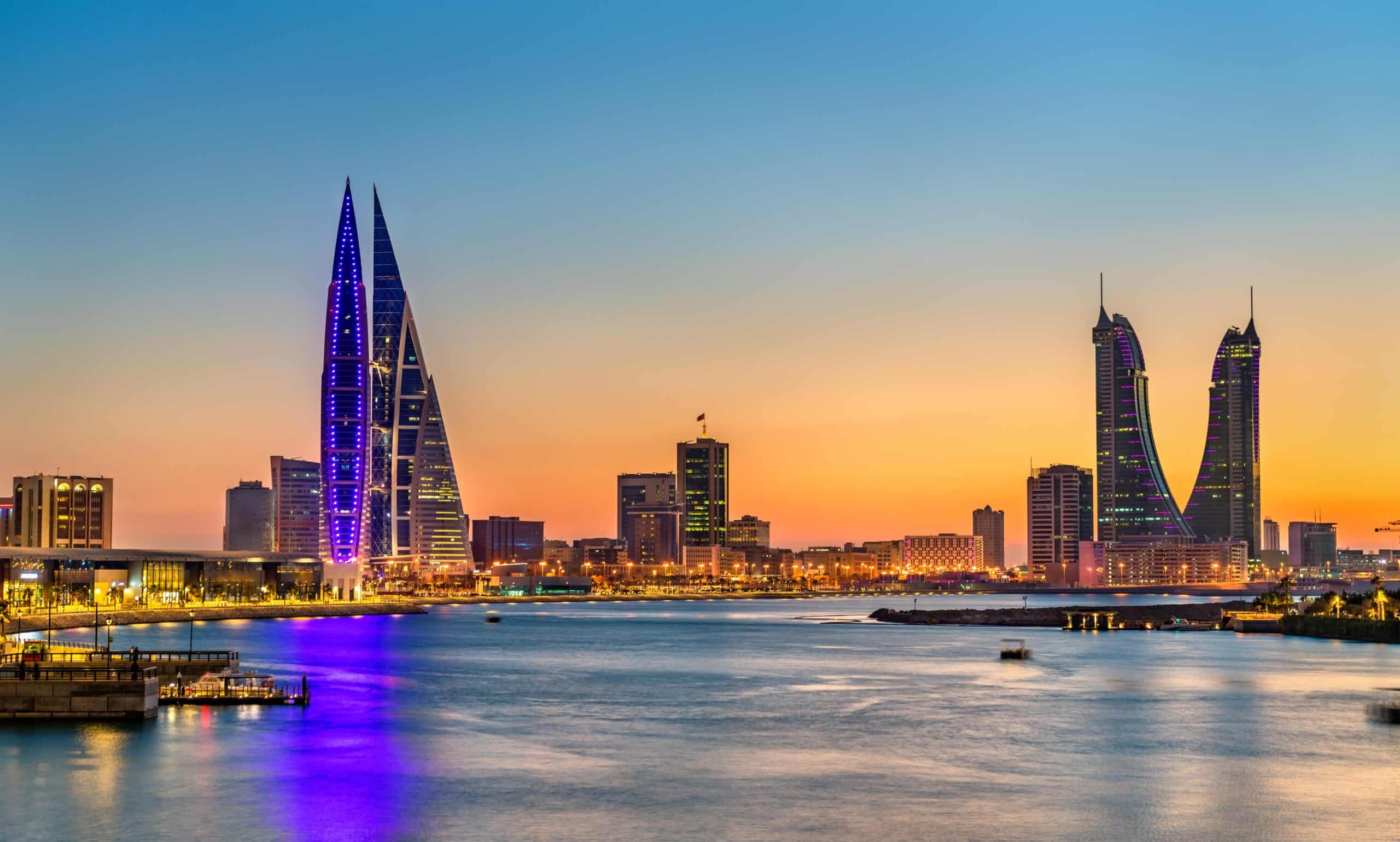
Bahrain, an island country in the Persian Gulf, became a Major Non-NATO ally in 2022. It hosts a U.S, naval base that is the headquarters of the U.S. Naval Forces Central Command and the U.S. 5th Fleet. About 9,000 American troops are based there. Bahrain normalized relations with Israel in 2020.
7. Qatar
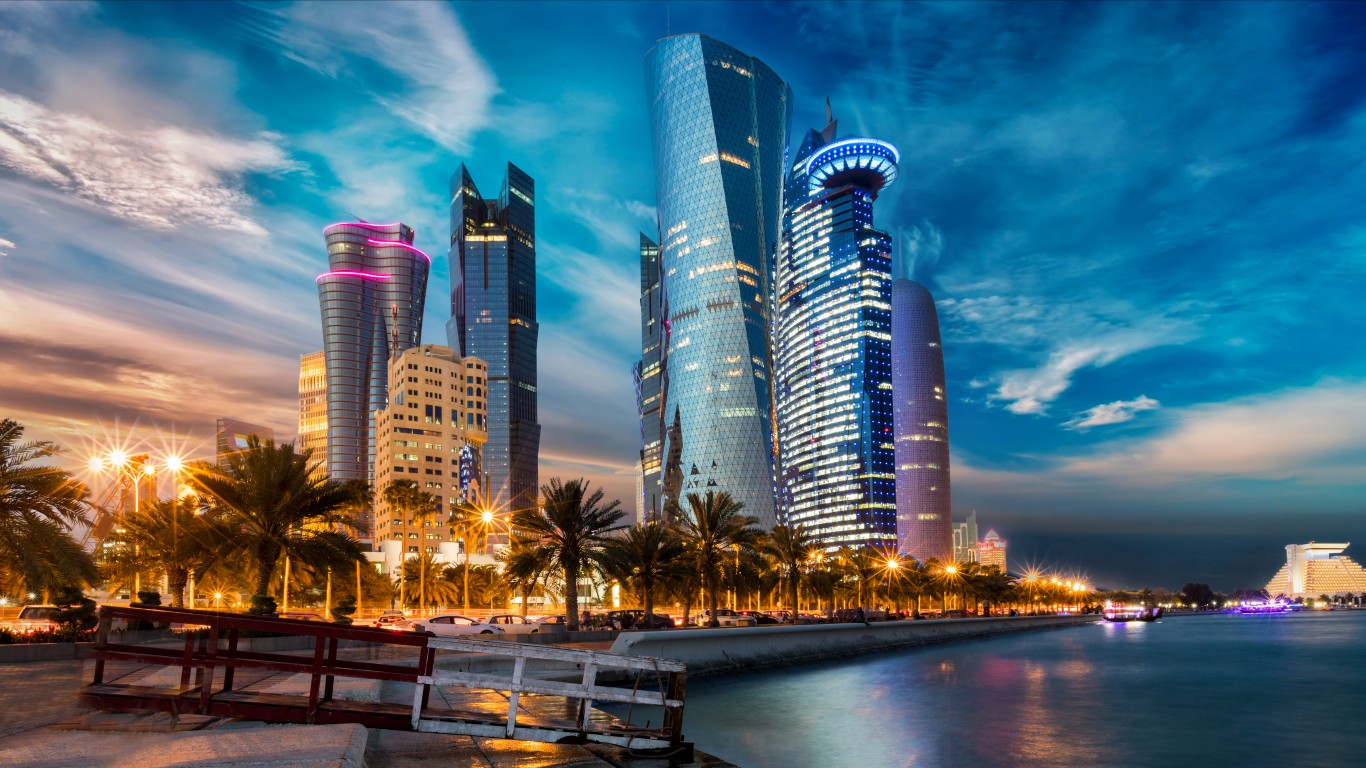
Qatar is also a small Persian Gulf country. 8,000-10,000 American military personnel are stationed at Al Udeid Air Base there. It is the largest American base in the region and the only one that allows basing American bomber planes. President Biden gave Major Non-NATO Ally status to Qatar in 2022
8. United Arab Emirates

3,500-5,000 American military personnel are stationed at Al Dhafra Air Base in the UAE. This country provides support for U.S. troops, military aircraft, and naval vessels in the region. The two countries also have significant economic connections beyond the oil industry. Among other things, the UAE is a significant travel destination for Western tourists. The UAE normalized relations with Israel in 2020.
9. Saudi Arabia
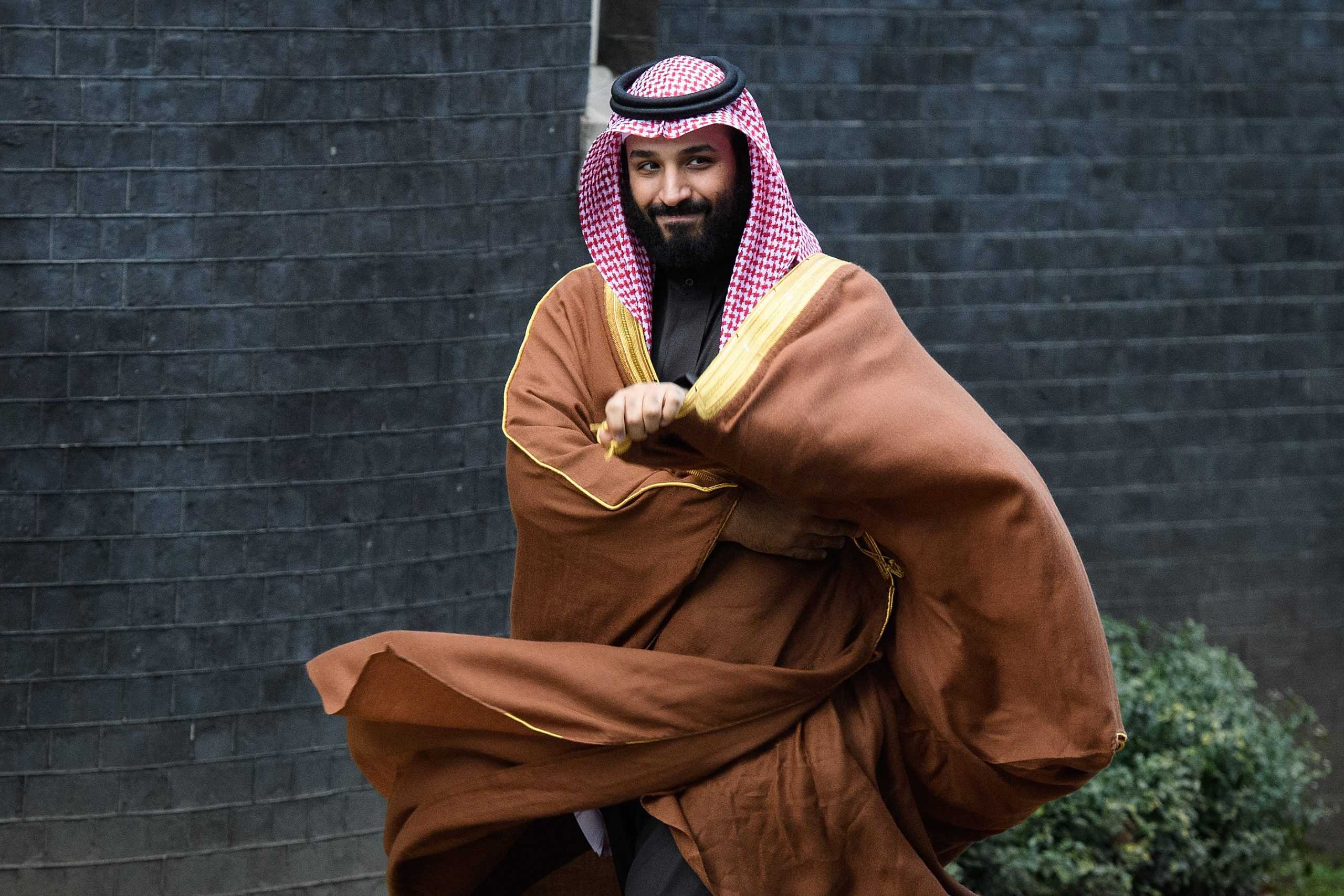
Saudi Arabia is the largest country in the region with the largest oil reserves and also holds religious significance as the caretaker of the Islamic holy sites in Mecca. The U.S. stations about 2,700 troops there. One of the motivations for America’s wars with Iraq was to protect not only Kuwait, but the Saudi oil fields from falling into enemy hands. Saudi Arabia is a major customer for American arms. However, the relationship between the two countries has been troubled by accusations of human rights abuses and the spread of radical teachings from some conservative Islamic schools and clerics.
Long-Term Prospects

As long as the Arab countries face the external threat of Iran, need advanced weaponry and training, and customers for oil, they are likely to continue aligning themselves with the United States no matter what happens in Israel. If Iran were to have a change of government to something more friendly, Arab countries may become less eager to host American troops or to continue turning a blind eye to U.S. support of Israel.
100 Million Americans Are Missing This Crucial Retirement Tool
The thought of burdening your family with a financial disaster is most Americans’ nightmare. However, recent studies show that over 100 million Americans still don’t have proper life insurance in the event they pass away.
Life insurance can bring peace of mind – ensuring your loved ones are safeguarded against unforeseen expenses and debts. With premiums often lower than expected and a variety of plans tailored to different life stages and health conditions, securing a policy is more accessible than ever.
A quick, no-obligation quote can provide valuable insight into what’s available and what might best suit your family’s needs. Life insurance is a simple step you can take today to help secure peace of mind for your loved ones tomorrow.
Click here to learn how to get a quote in just a few minutes.
Thank you for reading! Have some feedback for us?
Contact the 24/7 Wall St. editorial team.
